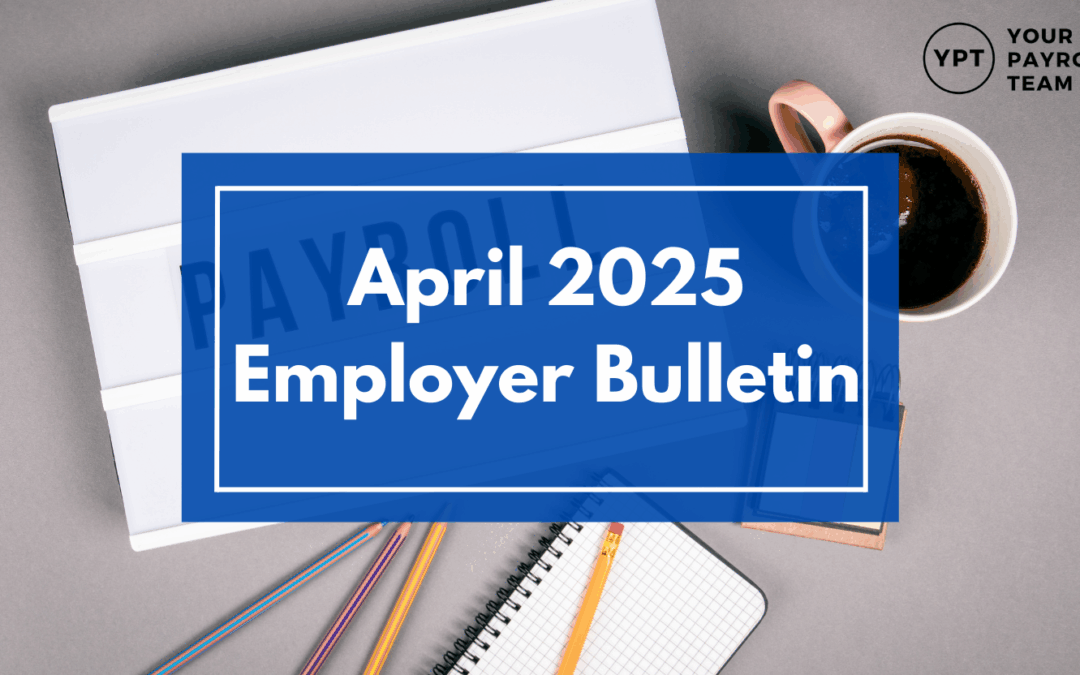The latest issue of HMRC’s Employer Bulletin, published in April 2025, delivers a wide range of updates and compliance guidance for UK employers and payroll professionals. Here are the key highlights that employers should be aware of for the 2025/26 tax year and beyond.
Statutory Pay and National Insurance Changes
National Minimum and Living Wage Increases: From 1 April 2025, new minimum wage rates apply. Employers must ensure these are reflected accurately in payroll calculations, including proper treatment of deductions and unpaid working time.
Employer NIC Rate Increase: From 6 April 2025, the employer’s Class 1 National Insurance rate increased from 13.8% to 15%. Class 1A and 1B NICs are also subject to this higher rate.
Lower Secondary Threshold: The NIC Secondary Threshold has decreased from £9,100 to £5,000 per annum, which may bring more employers into scope for NIC liabilities.
Employment Allowance Expansion: The Employment Allowance has increased to £10,500 per year, and the previous £100,000 NIC liability cap has been removed, broadening eligibility.
Small Employers’ Relief Adjustment: Small employers can now reclaim 108.5% (up from 103%) of qualifying statutory parental payments.
Off-Payroll Working and Student Loan Deductions
Revised Company Size Thresholds for IR35: For accounting periods beginning on or after 6 April 2025, updated thresholds for turnover and balance sheet totals will determine whether the IR35 off-payroll rules apply.
Student Loans for Deemed Employees: Student and postgraduate loan deductions must not be applied to deemed employees under the off-payroll rules. HMRC reiterates the importance of using the correct off-payroll worker marker in payroll systems.
Updated Loan Repayment Thresholds: The 2025/26 thresholds are:
- Plan 1: £26,065
- Plan 2: £28,470
- Plan 4: £32,745
- Postgraduate: £21,000
P11D and Benefits Reporting
Deadline for Submissions: The deadline for filing P11D and P11D(b) forms for the 2024/25 tax year is 6 July 2025. All submissions must be made online.
Payrolling Benefits Reminder: Employers who have payrolled benefits must still submit a P11D(b). P11Ds are not required for benefits that have been payrolled, except where not permitted (e.g. low-interest loans).
Correcting Errors: Amendments must be submitted digitally; paper forms are no longer accepted.
Class 1A NIC Payment Reference: Use your Accounts Office reference plus ‘2513’ when paying Class 1A NIC to ensure the payment is correctly allocated.
New Employer Responsibilities and Consultations
Workplace Postcode Reporting for NIC Reliefs: Employers claiming 0% employer NIC under Freeport or Investment Zone reliefs must now include the employee’s workplace postcode in the FPS.
Section 690 Replaced by Notification Process: Section 690 directions have been replaced with a new online notification process for employers who need to apply PAYE only to UK portions of internationally mobile employees’ income.
Overseas Workday Relief (OWR) Changes: From 6 April 2025:
- The offshore account requirement has been removed.
- OWR is now available for up to 4 years.
- A new annual cap on foreign earnings qualifying for OWR will apply.
Other Notable Updates
Vehicle Benefit Classification: Double cab pickups are now generally treated as cars rather than vans for benefit and capital allowance purposes unless acquired or ordered before 6 April 2025.
PAYE and VAT Direct Debit Payments: Employers can now pay PAYE and VAT liabilities by Direct Debit based on submitted returns.
High Income Child Benefit Charge (HICBC) Simplification: From summer 2025, a new service will allow eligible employees to manage HICBC via PAYE coding rather than Self Assessment.
Practical Guidance for Employers
Married Women’s Reduced NI Rate Checks: Ensure eligible employees meet the criteria and use the correct NI category code. HMRC systems will now flag inconsistencies.
Finding a National Insurance Number: Employees can use HMRC’s online service to retrieve their NI number without contacting HMRC directly.
Scam Awareness: Remain vigilant for VAT and tax-related scams. HMRC advises reporting any suspicious emails or messages.
Final Thoughts
This April 2025 Employer Bulletin is a comprehensive resource that outlines significant changes for the new tax year. Employers and payroll professionals should review their systems and procedures to ensure full compliance and take advantage of any reliefs and allowances.
For support in implementing these updates or to discuss how they may affect your business, please get in touch with our team at Your Payroll Team.
April 2025 Employer Bulletin
